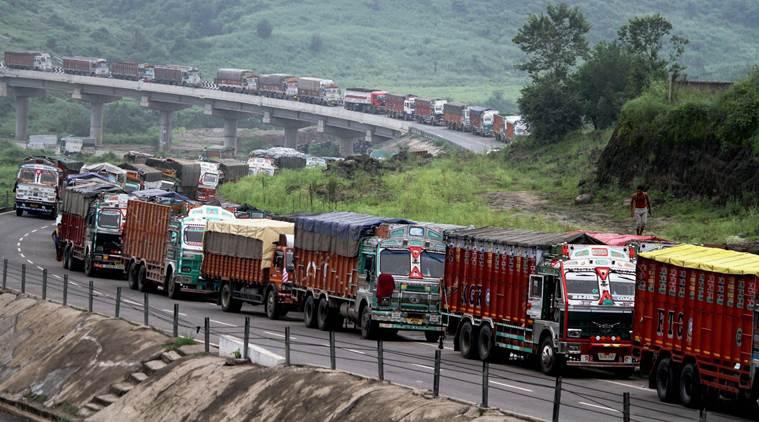Omar Abdullah demands long-term solution as NH-44 closure cripples Kashmir’s fruit industry
By: Javid Amin | 09 September 2025
Highway Closure Pushes Kashmir’s Horticulture Into Crisis
For more than two weeks, the Srinagar–Jammu National Highway (NH-44)—the Valley’s only all-weather road link with the rest of India—has remained blocked due to landslides and flash floods. The disruption has left hundreds of fruit-laden trucks stranded, dealing a massive blow to Kashmir’s fragile economy.
A Sector on the Brink
-
Kashmir’s horticulture industry is the backbone of its economy, generating ₹10,000–₹20,000 crore annually.
-
It directly supports 35 lakh people, from growers and traders to packers and laborers.
-
With trucks stuck, apple boxes are rotting, and prices have crashed in local markets.
-
The Sopore Fruit Mandi—Asia’s second-largest—has slowed to a trickle.
-
Trade bodies estimate losses exceeding ₹200 crore in just the first few days of disruption.
A grower from Shopian lamented: “We spend the whole year nurturing our orchards, but when the time comes to sell, we are at the mercy of landslides and administration’s delay.”
Omar Abdullah Steps In
Former J&K Chief Minister Omar Abdullah has urged authorities to treat the crisis with urgency while also looking beyond short-term fixes.
-
He assured that restoration work on NH-44 is being monitored on an hourly basis.
-
He pushed for long-term solutions, including:
-
Dedicated rail cargo service connecting Budgam to New Delhi.
-
Night-time priority movement for fruit trucks once the highway reopens.
-
Abdullah stressed that piecemeal repairs won’t save Kashmir’s horticulture sector, which faces the same crisis year after year.
Why Rail Cargo Matters
A Budgam–New Delhi rail cargo service could be a game changer for Kashmir’s fruit industry:
-
Reduces dependence on NH-44, which remains vulnerable to landslides.
-
Ensures faster, more reliable transport, especially during the peak apple harvest.
-
Cuts transportation costs for growers and traders.
-
Prevents annual economic shocks caused by road closures.
Ground Reality on the Highway
Despite reassurances, the situation on the ground paints a grim picture:
-
Truckers stranded near Qazigund report that apples are rotting in boxes.
-
Some have been forced to unload perishable produce on the roadside at throwaway prices.
-
The Mughal Road, while open, is unsuitable for large freight vehicles, offering little relief.
-
Laborers and traders dependent on daily transactions remain idle and anxious.
A truck driver stranded near Ramban said: “We are eating from our pockets, sleeping in trucks, and watching the fruit turn to waste.”
The Way Forward
The crisis underscores the urgent need for structural reforms:
-
Establish a rail cargo corridor to supplement NH-44.
-
Priority clearance for fruit trucks during disruptions.
-
Emergency storage facilities at key mandis to preserve fruit during transport delays.
-
Transparent communication from the administration to reassure growers and traders.
Conclusion: From Reactions to Resilience
The closure of NH-44 has once again exposed the fragility of Kashmir’s horticulture-dependent economy. While restoration may bring temporary relief, leaders like Omar Abdullah are pressing for solutions that ensure the Valley’s lifeline is not held hostage to weather and geography.
Unless rail cargo services and better contingency planning are put in place, Kashmir’s fruit growers will continue to face crippling losses year after year—with livelihoods, exports, and trust in governance all hanging in the balance.



